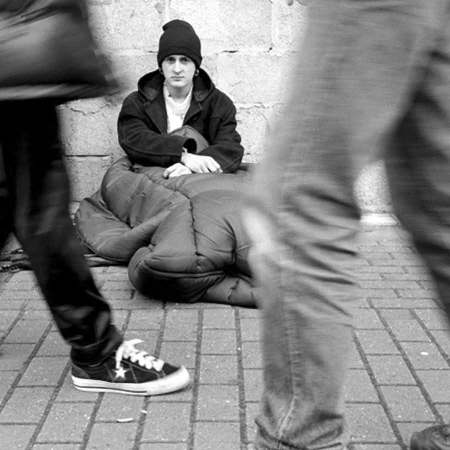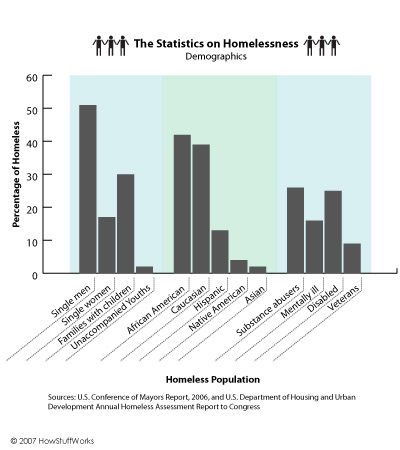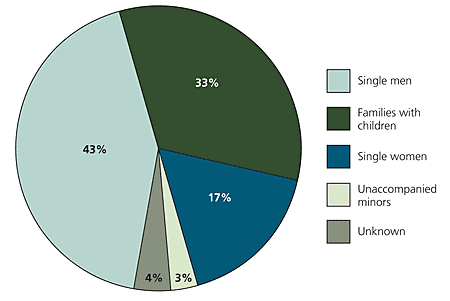
Article appeared in the Opinion section of the Tennessean on Monday, July 28, 2008
One of the best measures of character for Nashville is in the way the city handles its homeless population.
Various approaches apply to addressing homelessness . As the city sifts through all sorts of suggested remedies, its real intentions and motivations will determine whether Nashville is the quality city it likes to think of itself as being.
The motivations for decreasing Nashville’s homeless population have become two-fold. They should foremost be to genuinely help the homeless in ways that can get them into sustained shelter. The other goal has become to clean up areas where homeless people tend to congregate. Finding homes for them solves both problems.
It is common knowledge that being approached by — or sometimes just being near — someone who is asking for money or is in an extremely poor state of hygiene is a condition people find objectionable. Those problems are most pronounced downtown, and downtown is where a focus has been put on attracting more dwellers.
The city is constantly seeking ways to solve the homeless problem in ways that can help everyone. It requires creativity, but most of all it takes deep compassion to understand the issues homeless people face every day and night. Some ideas for solutions sound unusual. But just as homeless people should not be judged before learning more about how they got in that circumstance, ideas for decreasing homelessness should not be judged before they’re fully understood.
Police have been enforcing laws to preserve “quality of life” downtown. That has involved making or writing more than 500 arrests or citations for offenses such as aggressive panhandling, trespassing or public urination. Tent cities have been torn down. Hundreds of people have been offered help. Some have refused help.
Along the way, a downtown police commander asked homeless people what they needed, and some described scenarios of how it would help them to be in another specific city. The commander looked for donors to help make that happen by funding a bus ticket out of town. That came off in some ways as a plan to ship homeless people away. But by most accounts, it was well-intended help from the commander.
Handling homelessness demands tremendous sensitivity. Tearing down tent cities does not look like a sensitive remedy. The focus needs to be on what can be done to help. It makes perfect sense to assist someone with a bus ticket if that’s what the person needs and desires, but that’s not the answer for the vast majority of the homeless population in Nashville. What they need is a home.
Many Nashvillians do go out of their way to help people on the streets. Some people complain about panhandling. Some don’t like the idea that a handout results in a homeless person buying a beer. But when a homeless person buys a beverage in a convenience store, that person is a taxpayer — as much a Nashvillian as the richest person in Nashville.
There will always be exceptions, and some people do prefer life on the streets. Most don’t. Nashville should not want to be known for how it disperses a homeless population. It should be known for what it does to help homeless people be homeless no more. Each person has his or her own story. Each remedy has its own effects. How each case is handled helps determine the character of Nashville. Character is what determines if Nashville is a great city.
 So many times I think homeless people are treated as invisible. Some hang out in places where so many people see them, but how many actually look at them, talk to them, acknowledge their worth as a human being?
So many times I think homeless people are treated as invisible. Some hang out in places where so many people see them, but how many actually look at them, talk to them, acknowledge their worth as a human being?



 While on the mission to complete this multimedia project, one of the things that has really stuck with me is the lack of respect that surround the homeless. On a street corner where a homeless person is struggling to stay warm, they are rarely given a second look. Most people think they are just one of those lazy people who are unwilling to find a job so they rely on other people to give them money. Don’t they realize that each one of those individuals has a story, a circumstance, that got them where they are today and that they are still human beings like the rest of us and deserve to be treated with respect?
While on the mission to complete this multimedia project, one of the things that has really stuck with me is the lack of respect that surround the homeless. On a street corner where a homeless person is struggling to stay warm, they are rarely given a second look. Most people think they are just one of those lazy people who are unwilling to find a job so they rely on other people to give them money. Don’t they realize that each one of those individuals has a story, a circumstance, that got them where they are today and that they are still human beings like the rest of us and deserve to be treated with respect?